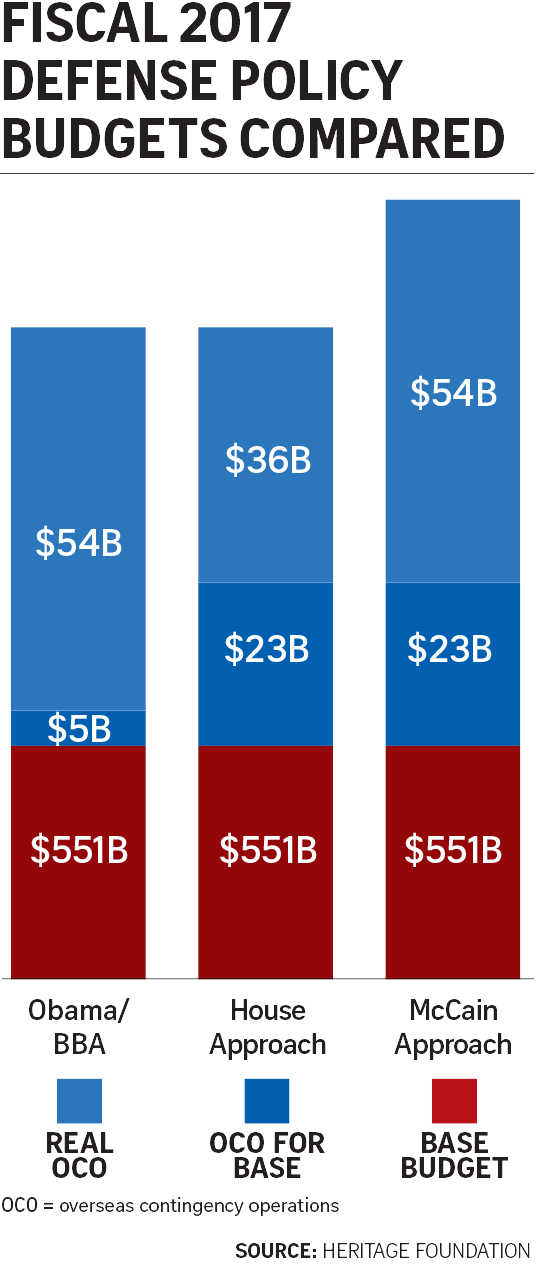Sen. John McCain’s amendment to boost defense spending in fiscal 2017 by about $18 billion would fund more aircraft and ships not included in the president’s budget request, but that the services say they need.
McCain has said he will introduce the amendment when the full Senate considers the National Defense Authorization Act, likely once lawmakers return to Washington after a week-long Memorial Day break.
If it passes, it would increase the Senate bill’s top line by adding $18 billion above the president’s request for overseas contingency operations, bringing the total war-fighting account to $77 billion. The base budget stays at $551 billion, for a total of $628 billion. The House version is $610 billion total, which is the same top line as the president’s request.
Democrats argue that this would bust the caps set by last year’s budget deal, and Sen. Dick Durbin, D-Ill., said Democrats won’t support the increase without a comparable boost in domestic spending.

“It depends on whether there is an equal amount in non-defense,” Durbin told reporters on Thursday. “I see it as unanimous thinking.”
McCain’s plan would invest about $1 billion in aircraft procurement for the Army, including 17 Airbus UH-72 Lakota helicopters and 36 Sikorsky H-60 Black Hawk helicopters, both of which were recommended by the National Commission on the Future of the Army.
It would also authorize $245 million to modernize General Dynamics M-1 Abrams tanks and BAE Systems Bradley fighting vehicles for the European Reassurance Initiative.
The Navy and Marine Corps would get an additional $2.5 billion over the president’s request for aircraft buys, including 14 Boeing F/A-18 Super Hornets, six more Lockheed Martin F-35s and two additional MV-22 Ospreys, built by Bell Boeing.
The Navy would also get an additional littoral combat ship for $385 million. Lockheed Martin and Austal USA make the two variants.
McCain’s plan also includes a boost to spending on Israeli missile defense, an increase that’s reflected in the authorization bill that passed the Senate Appropriations Committee on Thursday morning.
